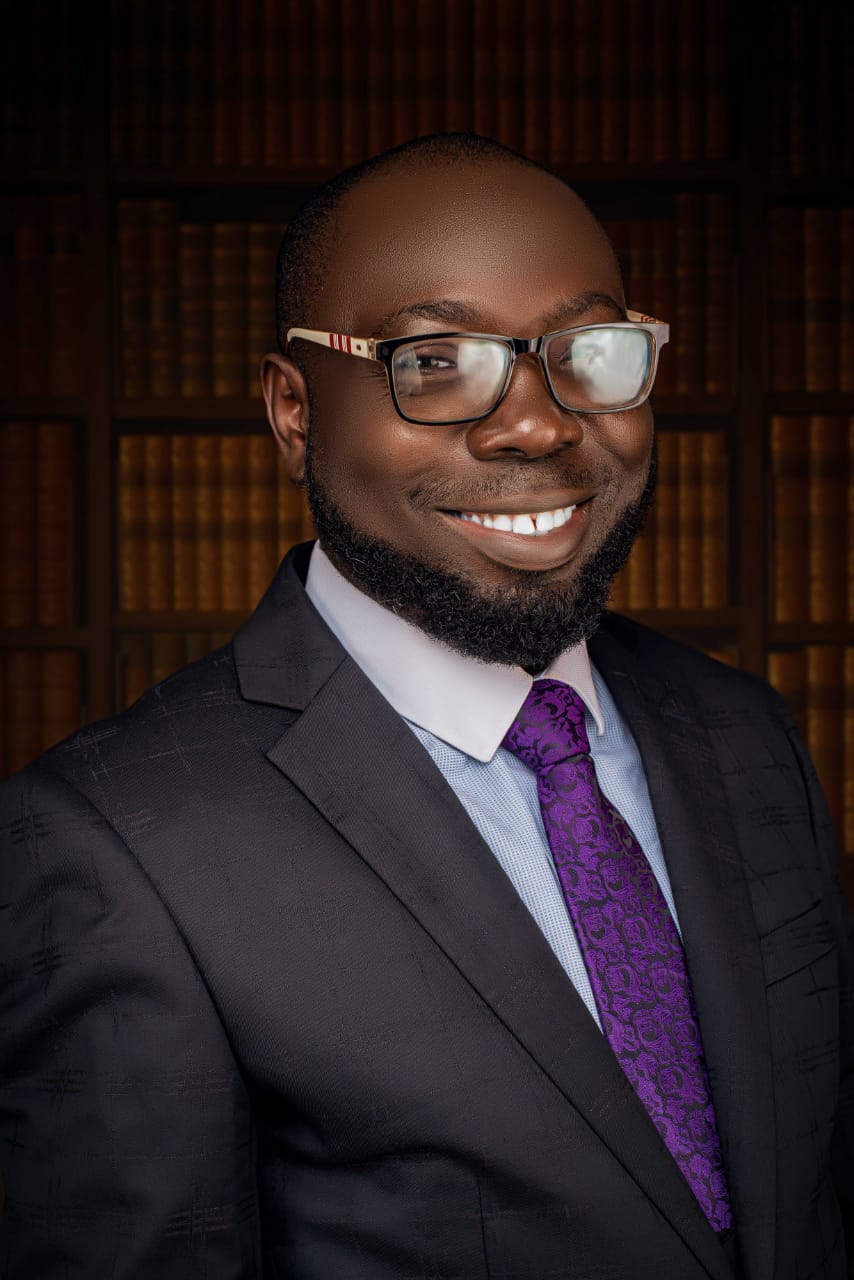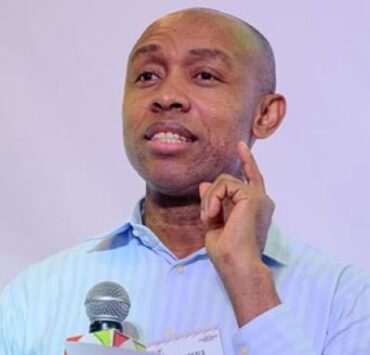OGWUCHE V. AGBO: On whether a corps member on compulsory one year National Youth Service can contest the primary election of a political party.

Lawyard is a legal media and services platform that provides…
CITATION: (2023) 17 NWLR PT. 1913 AT 339.
PARTIES IN FULL:
AIDA NATH OGWUCHE
V.
1. HON. FRANCIS OTTA AGBO
2. PEOPLE DEMOCRATIC PARTY [PDP]
3. INDEPENDENT NATIONAL ELECTORAL COMMISSION (INEC).
COURTESY: Moruff O. Balogun, FIMC, CMC, CMS
Summary of facts:
The appellant herein was a civil servant in the employment of Federal Inland Revenue Services (FIRS), an agency of the Federal Government. Following her appointment as Principal Special Assistant to the Governor of Benue State, she applied to FIRS for leave of absence without pay to proceed on secondment to take up the said political office appointment. FIRS approved the application and granted her a two years leave without pay with effect from 21st September, 2020.
By a letter dated 28th February, 2022, the appellant wrote to the Government of Benue State resigning her appointment as Principal Special Assistant to the Governor on Abuja Liaison to enable her contest the then forth-coming primary election of the 2nd respondent’s candidate for 2023 general election of member of House of Representatives for Ado/Okpowu/Ogbedibo Federal Constituency of Benue State.
The resignation was received on the same day as shown on the receipt stamp. By a letter dated 7 March, 2022, the Government of Benue State informed the appellant that the Governor of Benue State had accepted her said resignation.
On 30th March 2022, the appellant purchased and filled expression of interest and nomination forms to contest the 2nd respondent’s primary election of its candidate of member House of Representatives for Ado/Okpokwu/Ogbadibo Federal Constituency.
She submitted the forms to the 2nd respondent on 19th April 2022 as shown on the receipt stamp. The appellant along with other aspirants was screened on 27th April 2022 by the Screening Committee of the 2nd respondent, issued a letter clearing her as qualified to contest in the primary election which held on 23rd May, 2022. The appellant scored majority of the votes cast in the election and was declared winner of the election. Having won the primary election, she wrote a letter dated 25th May, 2022 to FIRS, resigning her public service employment with the agency.
The letter was received on 26th May 2022. On 16th June, 2022, the 2nd respondent submitted the appellant’s name to INEC as its candidate for the 2023 general election of member House of Representatives for Ado/Okpokwu/Ogbadibo Federal Constituency as the acknowledgment of receipt of same by INEC shows.
The 1st respondent was of the contention that the appellant was bound to resign from her employment in the public service of the Federation with FIRS before contesting as an aspirant in the said 2nd respondent’s primary election of 23rd May, 2022 and that she failed to do so and thereby breached the Constitution of Nigeria. It was on that basis that he filed an action against the appellant and the other respondents.
After considering all the affidavits and written addresses of the respective parties, the trial court dismissed the 1st respondent’s claims and held that the appellant need not resign her employment with the Federal Inland Revenue Services (FIRS) before participating as an aspirant in the 2nd respondent’s primary election of its candidate for the 2023 general election of member House of representatives for Ado/Okpokwu/Ogbadibo Federal Constituency in Benue State.
Dissatisfied with the judgment of the trial court, the 1st respondent appealed to the Court of Appeal. After considering the arguments in the briefs of the respective parties, the Court of Appeal allowed the appeal and set aside the decision of the trial court after finding that the appellant did not resign from her employment in the public service before venturing into active politics and holding that this is contrary to section 66(1) (f) of the 1999 Constitution and Rule 030 423 of the Public Service Rules, that she ought to have resigned from public service employment before contesting the party primaries that she was therefore not qualified to contest the primary election.
Dissatisfied with the judgment of the Court of Appeal, the appellant appealed to the Supreme Court.
In determining the appeal, the Supreme Court considered the provisions of sections 66(1)(f) and 285 (9) of the Constitution of the Federal Republic of Nigeria 1999 (as amended). They provide as follows:
66(1) No person shall be qualified for election to the Senate of the House of Representatives if –
(f) He is a person employed in the public service of the Federation or of any state and has not resigned, withdrawn or retired from such employment thirty days before the date of election.
285(9) Notwithstanding anything to the contrary in this Constitution, every pre-election matter shall be filed not later than 14 days from the date of the occurrence of the event, decision or action complained of in the suit.
Held (Unanimously allowing the appeal):
1. On whether a corps member on compulsory one year National Youth Service can contest the primary election of a political party-
A Corps Member’s participation in politics or any other activity during the service year is expressly prohibited by section 2(3) and 13(1) of the National Youth Service Corps Act, and the National Youth Service Corps Act
(Bye Law 2011) No. S.4 of 2011.
Per AGIM, J.S.C. at page 360 paras A-C
“In this case, the appellant t is not a Corps Member She withdrew from public service employment by going on 2 years leave of absence without pay and resigned from her political office appointment before contesting the primary election of 23-5-2022. She also resigned from her employment before contesting the February 2023 general elections. There was no basis for the Court of Appeal’s reliance on our decision in Modibbo v Usman in deciding this case before it”.
2. On disqualification for election into the Senate or House of Representatives-
By virtue of section 66(1) (f) of the Constitution of the Federal Republic of Nigeria 1999 (as amended), no person shall be qualified for election to the Senate or the House of Representatives if he is a person employed in the public service of the Federation or of any state and has not resigned, withdrawn or retired from such employment thirty days before the date of election.
3. On methods of leaving employment in the public service of the Federation thirty days before election to qualify for election to National Assembly-
The provision of section 66 (1) (f) of the Constitution of the Federal Republic of Nigeria, 1999 (as amended), prescribes three alternative methods of leaving employment in the public service of the Federation of a State thirty days before the date of election to qualify for election to the National Assembly. The three methods are: resignation or withdrawal or retirement. Leaving by any of the three methods, thirty days before the date of election qualifies a person for election to the Senate or House of Representatives. There is nothing in the provision requiring that you can leave by only resignation. While resignation and retirement involve completely and permanently leaving the public service, withdrawal from employment ordinarily means a temporary leave of absence from or going away or departure or retreat from service. In any case, the word “withdrawn” is used in the above provisions of the Constitution without any words limiting its meaning or application to either permanently or temporarily leaving the public service. So the withdrawal can be permanent or temporary. In the instant case, the appellant withdrew from the employment of Federal Inland Revenue Service when on 18th August, 2020 she left on a 2-year leave of absence without pay to take a political office appointment as Principal Special Assistant to the Governor of Benue State on Abuja Liaison. On 28th February, 2022 she resigned her political office appointment to contest the 2nd respondent’s 23rd May, 2022 primary election of its candidate for the general election of member House of Representatives for Ado/Okpokwu/Ogbadibe Federal Constituency. So, when she contested the primary election on 23rd May, 2022, she had withdrawn from her employment with Federal Inland Revenue Service and had not returned to it and had resigned her political office appointment.
She also resigned her Public Service employment on 26th May, 2022 to enable her contest the 2023 general election as the 2nd respondent’s said candidate. Thus, the appellant complied with section 66(1)(f) of the 1999
Constitution and was therefore eligible to contest both the primary election and the 2023 general election. [Modibbo v Usman (2020) 3 NWLR (Pt.1712) 470 distinguished.
4. On when Court of Appeal is bound to follow its previous decisions or previous decisions of the Supreme Court –
The Court of Appeal is bound to follow the previous decisions of the Supreme Court or its previous decisions, until it departs from it, only if:
The question resolved in the precedent case is the same as the question to be resolved in the pending case.
The resolution of that question was necessary to the determination of the precedent case and the present case depends on the resolution of that question for its determination.
The significant or material facts in the precedent case are also present in the pending case, and No additional facts appear in the pending case that might be treated as significant.
It is not every fact in the precedent and pending case that must be considered to determine if the two cases are factually similar. Only facts that are significant or relevant to the resolution of the question in the precedent case and the pending case that should be considered. The precedent case and the pending case do not have to be identical in all facts. In the instant case, the decision of the Court of Appeal that the appellant was not qualified to contest the primary election of 23rd May, 2022 relying on the previous decision of the Supreme Court in Modibbo V Usman which disqualified a youth corper from participating in political activities was wrong because the appellant was not a youth corper.
5. On what a case is authority for –
A case is authority only for what it decides.
COURTESY:
MORUFF O. BALOGUN, FIMC, CMC, CMS
VICE CHAIRMAN, NBA IJEBU ODE BRANCH,
IJEBU ODE, OGUN STATE.
08052871414
09121207712 [WHATSAPP]
Lawyard is a legal media and services platform that provides enlightenment and access to legal services to members of the public (individuals and businesses) while also availing lawyers of needed information on new trends and resources in various areas of practice.













